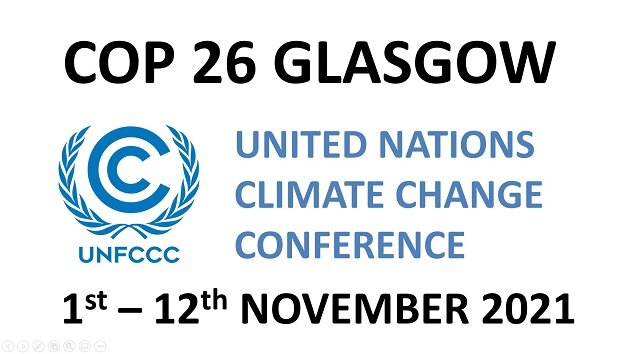
David Jones
Those involved in the struggle to slow global heating generally agree on one thing: the United Nations COP process has been an unmitigatedfailure. However, among these various groups, the critiques and proposed remedies vary widely. Some suggest it is a problem of representation; that corporations and NGOs wield too much influence. Others feel it is a question of balance; that nations with the largest economies are weighted too heavily in the voting. And then there is a growing contingent which views the entire institution as impotent,that given the nature of the crises we face, COP is a useless, even counter-productive distraction. It is this last argument I wish to entertain here.
As various tendencies within the climate movement contemplate strategy around the next COP in Glasgow, it is important to recall the history of this institution and the framework through which it deliberates. This will be the twenty-sixth meeting of the “parties”. When they first met in 1995, atmospheric CO2 was 360 ppm. After having haggled and deferred and procrastinated for 26 years, the ppm is now a critically dangerous 417. At each gathering, hopeful activists and NGOs show up to demonstrate and march, get blocked from attending and hold theatrical “counter”conferences. And yet, despite all this protest, it has become increasingly obvious that no “developed” nation is willing to give up its “comparative advantage” or risk continued growth in GDP to slow emissions. Countries express great ambition, but fail to follow through. Negotiators work on text, none of which ends up as binding. Predictably, catastrophically, the oceans keep warming, weather events become more extreme, and more people are displaced, suffer and die. Inexorably, species go extinct and entire ecosystems verge on the precipice of collapse.
It is through this realist assessment that many in the movement are calling for a radical change in strategy. An example is the Glasgow Agreement, now signed by over fifty groups from around the globe. They state the problem thusly:
“The institutional framework used by governments, international organizations and the wholeeconomic system to address the climate crisis is failing in keeping global warming below 1.5 or 2°C by 2100. From its onset, developed countries and polluting corporations like the fossil fuel industry have orchestrated the repeated failure of this institutional framework. Instead, an illusion of climate action was created while decisive steps were delayed and greenhouse gas emissions were allowed to continue rising.”
With its continued reliance on failed market “solutions” and NGO hyped, techno- “green” capitalism, we can predict that it is this “illusion”, rather than just and equitable structural change, that will once again be on the table in Glasgow. It is for this reason that the signatories to the agreement propose that:
“…organisations will maintain their main focus away from institutional struggle – namely from negotiations with governments and the United Nations…”
The focus will instead be on creating an inventory showing how and where emissions are produced. Popular assemblies will be formed to create a “territorial climate agenda”andidentify particular, localsources. These sources will be targeted using “political and economic noncooperation, as well as nonviolent intervention, in particular civil disobedience”. In essence, they propose a turn away from institutions which have been captured and colonized by Capital, and towards the development of social power to bring about lasting change.
I too believe that it is through day to day, on the ground struggle and the assumption of concrete, immediate risk, that a powerful base can be enlarged and radicalized. The climate justice movement cannot continue doing the same thing over and over while expecting different results. The legitimization of this failed COP process depends on our continued faith and participation. It might just be that the greatest opportunity that COP 26 provides is in its outright rejection.

Be the first to comment